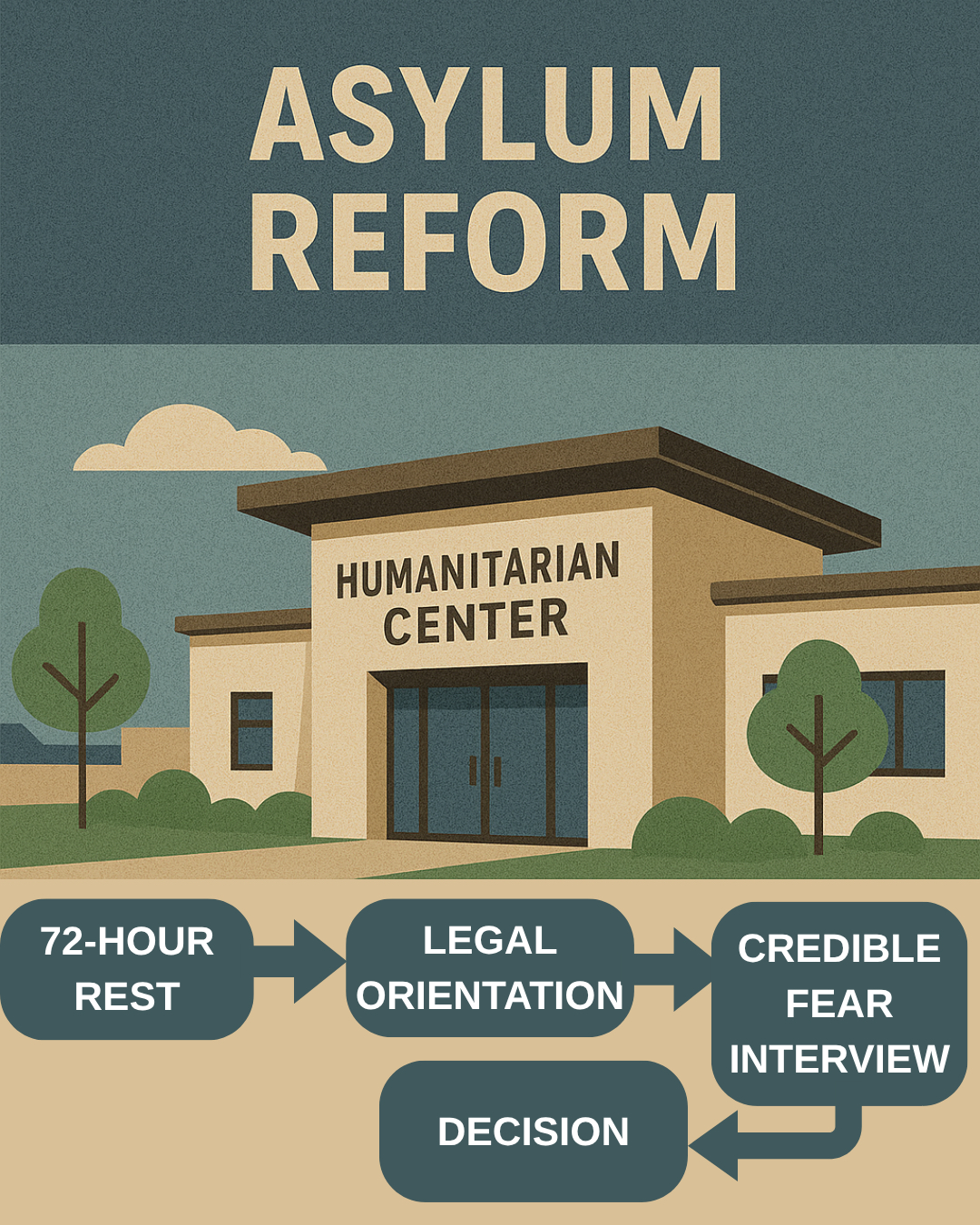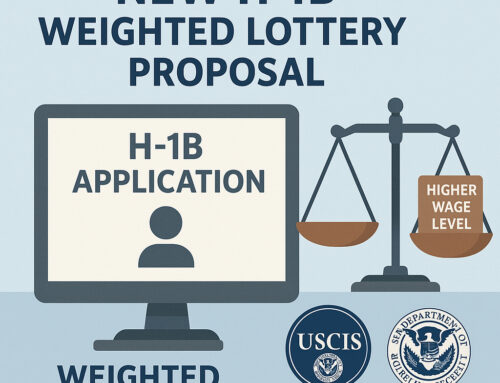One of the bill’s most significant reforms involves restructuring how asylum is processed at the border. The Department of Homeland Security would be required to build at least three large “humanitarian campuses” near the southern border. These facilities, designed to be less punitive than traditional detention centers, would serve as processing hubs staffed by federal agencies, nonprofit organizations, legal providers, and caseworkers.
At these centers:
- Migrants would receive a 72-hour rest period, during which background checks and DNA tests would be conducted
- A legal orientation would follow, then a credible fear interview within 15 days
- Each case would be reviewed by two asylum officers simultaneously
If both officers agree the applicant qualifies for asylum, status would be granted immediately. If both reject the claim, it would be denied. Disagreement between officers would send the case to an immigration judge for further review.
Applicants denied asylum would have one appeal opportunity before a new panel of officers. If rejected again, a final removal order would be issued with no option for judicial review – unless the case was referred to a judge due to complexity or the applicant was considered part of a vulnerable group.
Some migrants would be eligible for pre-screening in Latin American countries. If they present compelling evidence of persecution, they could be granted a visa to enter the U.S. legally, subject to the annual refugee cap.
About the Author
Elizabeth Garvish
Elizabeth L.A. Garvish founded Garvish Immigration Law Group, LLC in 2011 after practicing immigration law in small boutique firms, big law and nonprofits. Elizabeth is a frequent speaker and presenter on entrepreneurship and U.S. immigration topics around the world. She is an active member of the American Immigration Lawyers Association (AILA) and serves on various national committees and is the Past Chair of the Georgia-Alabama Chapter of AILA. Elizabeth is also a certified member of the EO Global Speakers Academy.




